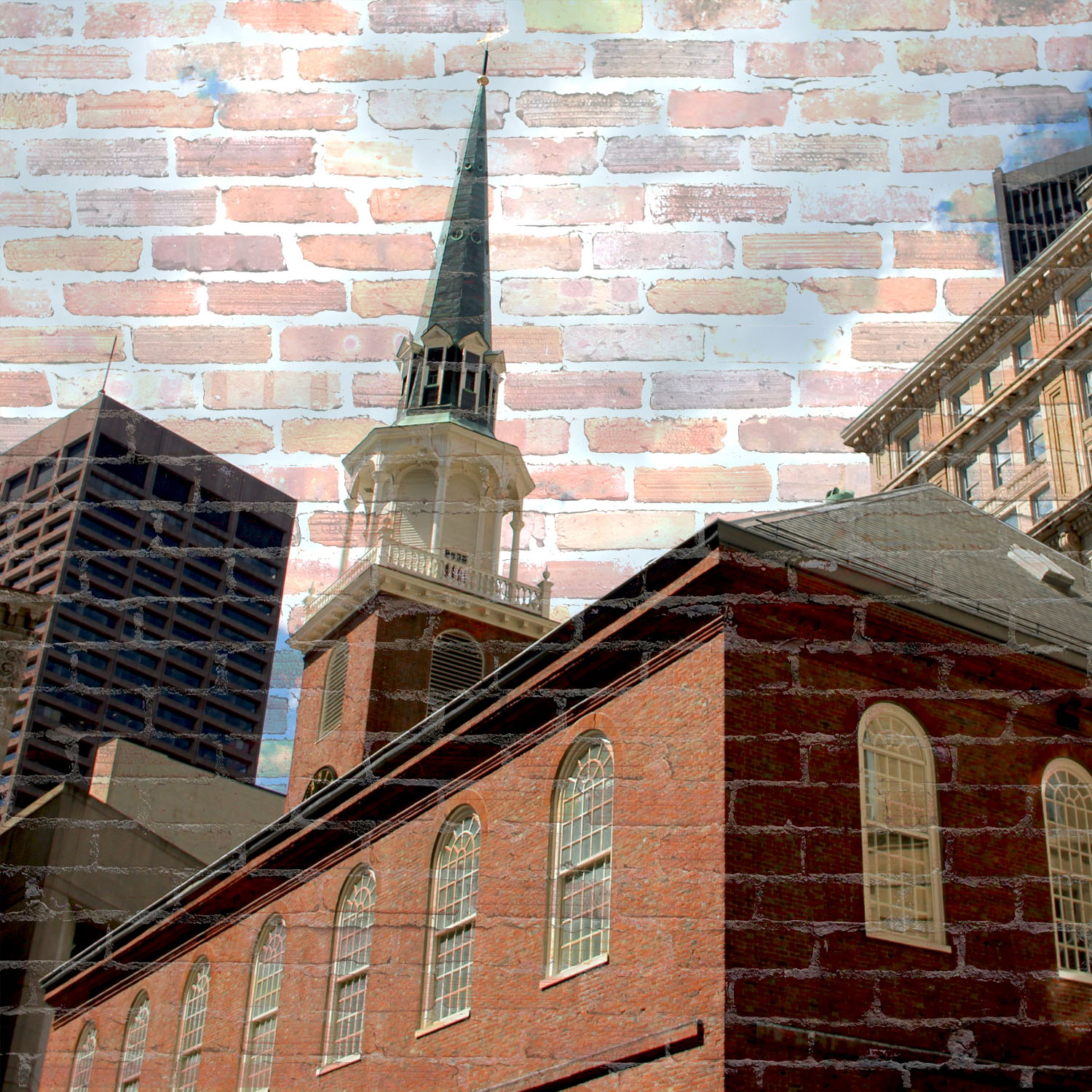
Lowell Lecture
Beyond Boston: Old South Meeting House’s Global Construction
Date & Time
May 29, 2021 at 2 p.m. - 3:15 p.m.
Location
Virtual
, MA
Driving Directions
Speaker(s)
PANELISTS Eric Gradoia is the Director of Preservation at Historic Deerfield whose primary field of study is 17th-19th century New England vernacular architecture and building materials. He has served as adjunct faculty at Rogers Williams University, sits on the board for the Historic Eastfield Foundation, and is a registered assessor with the American Institute for Conservation.
Oliver Gerrish is a Cambridge University-trained architectural historian based in the United Kingdom who specialises in preservation. Oliver is an author and lecturer on English architecture and has led several preservation initiatives with the Georgian Group, Derbyshire Historic Buildings, and Historic Decorations, a group he founded with Lady Caroline Percy. Though a Briton, Oliver’s family ancestry includes one Thomas Gerrish, a Son of Liberty and a participant during Boston’s Destruction of the Tea at the Boston Tea Party!
MODERATED BY: Dorothy Clark is an independent architectural historian who has extensively researched “forgotten histories” and colonial New England buildings. Dorothy is a professor at Boston Architectural College, an editor for Historic New England’s magazine, and sits on the Board of Directors at the Loring-Greenough House.
Presenting Organization
Topics
Contact
Stephen Libby (slibby@revolutionaryspaces.org, 6177201713)
PRESERVATION MONTH PANEL
For nearly 300 years, Old South Meeting House has stood in Boston as a testament to its construction and preservation. While the building itself is at the epicenter of America’s founding stories, the history of its construction is far more global. The enduring assumption for Old South Meeting South, and buildings like it, is a narrative locked into patriotism and hyper-locality. Beyond Boston: Old South Meeting House’s Global Construction will engage our panelists in discussions on the global materials economy in the 18th century, the role of slavery and servitude in the construction of New England’s most iconic buildings, and the emergence of a domestic, regional style born from international influence. Our panelists are experts in 18th century architecture with specialties ranging from forgotten New England Histories, Georgian English architecture, and transatlantic building materials.
This event is generously supported in part by the Lowell Institute.